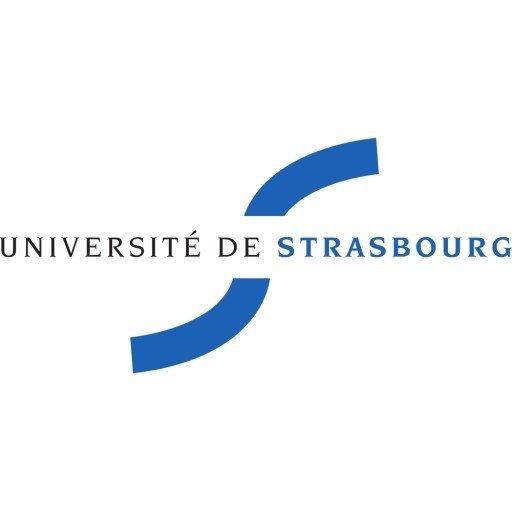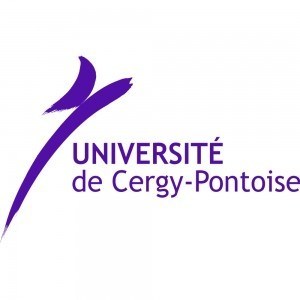Photos of university / #cambridgeuniversity
The Physics undergraduate program at the University of Cambridge offers an exceptional education in the fundamental principles governing the universe, combining rigorous theoretical studies with extensive practical research. The course is designed to provide students with a comprehensive understanding of classical and modern physics, equipping them with the analytical, experimental, and computational skills necessary to address complex scientific questions. Over the duration of the program, students explore a wide range of topics including classical mechanics, electromagnetism, quantum mechanics, statistical mechanics, thermodynamics, and relativity. The curriculum also includes cutting-edge areas such as condensed matter physics, particle physics, astrophysics, and cosmology.
Students benefit from access to state-of-the-art laboratories, observational facilities, and a vibrant research community led by world-renowned faculty. The program encourages critical thinking, problem-solving, and innovative approaches to scientific challenges. Throughout their studies, students have the opportunity to undertake individual research projects, participate in collaborative investigations, and attend seminars and workshops that keep them at the forefront of physics research.
The teaching methodology emphasizes both theoretical comprehension and hands-on experimentation, preparing graduates for diverse career paths within academia, industry, and scientific research institutions. The close interaction with researchers fosters a stimulating academic environment that inspires curiosity and innovation. Cambridge’s rich history in physics research and its collaborations worldwide ensure students gain a globally relevant education that combines tradition with technological advancement.
The program is typically structured over three or four years, with options for specialized pathways in the final year to suit individual interests and career aspirations. Graduates of the program are well-equipped with a solid foundation in physical sciences, critical scientific skills, and a profound understanding of the physical universe, opening doors to advanced postgraduate study or employment in scientific, engineering, and technological sectors.
The PhD in Physics is a full-time period of research and involves minimal formal teaching. Students are expected to attend an appropriate subset of the Department’s programme of research seminars and other graduate courses but most research training is provided within the group structure and overseen by their Supervisor. Informal opportunities to develop research skills also exist through mentoring and other opportunities offered by fellow students and members of staff.
| One to one supervision |
The supervisory team consists of the Principal Supervisor (normally referred to as the Supervisor) and an Adviser. The Supervisor is the main person appointed to oversee and help with a student's PhD study and an Adviser is appointed to act as a second point of contact for academic advice. The University of Cambridge publishes an annual Code of Practice which sets out the University’s expectations regarding supervision
|
|---|---|
| Seminars & classes |
Students will be advised by their Supervisor which seminars and classes to attend based on their relevance to the chosen research project and also to best facilitate integration into the host research group. |
| Lectures |
Students will be advised by their Supervisor which lectures to attend based on their relevance to the chosen research project and also to best facilitate integration into the host research group. |
| Journal clubs |
Students will be advised by their Supervisor which journal clubs to attend based on their relevance to the chosen research project and also to best facilitate integration into the host research group. |
| Posters |
The Cavendish Graduate Student Conference is held annually, organised by graduate students, and is a one-day event of talks and poster presentations by graduate students from all research groups. |
Feedback
Supervisors report termly on the progress of their students and these reports are available to the student.
Graduate students are represented on the Department's Graduate Student Consultative Committee, which normally meets five times a year, and consists of one or more student representatives from each of the research groups. The Committee exists to enable discussion of any issue affecting graduate students and students may approach any member of the Committee to suggest items for discussion.
Assessment
Thesis
The final PhD assessment will be of a submitted thesis of 60,000 words and subsequent viva voce examination.
Other
All PhD students are probationary in the first year and progression to the second year (and registration for the PhD) depends on a successful first year review.
Apply using the Applicant Portal
The Apply Online button on the right will take you to the Applicant Portal, where you can create and submit your application, and request references.
An application is only complete when:
- you have submitted your application via the Applicant Portal and paid the £50 application fee
- you have uploaded the required supporting documents via the Applicant Self-Service
- your referees have provided their references.
If you miss the deadlines specified in this section, you will not be able to submit your application.
On your application, in Section A(12), please clearly indicate which of the Research Groups you would prefer to work with. If you are unsure state whether it is Condensed Matter Physics, Astrophysics, High Energy Physics or another topic within the Department that interests you. You may list more than one area of interest and, if doing so, should indicate your order of preference. It is not necessary to nominate a prospective supervisor, although you may if you wish.
All applications are considered as they are received (rolling admissions). However the department operates internal review dates from January through to April in order to allocate funding. The deadlines for University-wide funding competitions are listed on the Graduate Admissions webpages and UK Research Councils, EC and other studentship deadlines are listed on the departmental webpages.
Any applications received after these dates will be considered but funding opportunities may be limited.
Selection Process
Selected candidates will be interviewed by Skype, telephone or in person.
- Magistr (Master's Degree) at Pass level. Diploma Specialista (completed post-1991) with a minimum overall grade of good or 4/5 Bachelor's from Moscow Institute of Physics and Technology and other prestigious institutions with an overall grade of 4/5 Bologna Bachelor's from other institutions with an overall grade of 5/5, Excellent
- Diploma Specialista (completed post-1991) with a minimum overall grade of Excellent or 5/5 Bachelor's from Moscow Institute of Physics and Technology and other prestigious institutions with an overall grade of 5/5
- IELTS (Academic) 7.0
- TOEFL Internet Score 100
- £50 application fee
- First Academic Reference
- Second Academic Reference
- Transcript
- Personal Reference
Financing studies at the University of Cambridge for the Physics undergraduate program is supported through a variety of scholarships, bursaries, and funding options designed to assist students with the costs of tuition, living expenses, and academic materials. Potential applicants are encouraged to explore the university’s official funding webpage to identify scholarships for which they are eligible, including those dedicated specifically to science and physics students. The Cambridge Trust offers numerous scholarships based on merit and need, which can significantly reduce financial burdens for international and domestic students alike. Additionally, certain colleges within the university provide their own financial aid packages, often including fee waivers, grants, and living cost support. For students from the UK, government-backed loans such as the Student Loan Company funding are available to cover tuition fees and maintenance costs, with repayment plans linked to income levels. International students may seek external funding from national scholarship programs or discover university-funded bursaries that cater specifically to international scholars. Furthermore, the university’s department may provide research grants and assistantships for students engaged in research projects, enabling them to earn stipends while gaining hands-on experience in physics research. Students are also encouraged to look into external funding sources, including various science foundations, charitable trusts, and industry sponsorships, which sometimes partner with the university to support promising physicists. The university’s admissions office and financial aid office provide guidance and application support for all available funding options, ensuring students can plan financially for their studies effectively. Overall, the university is committed to making physics education accessible and affordable through an extensive network of financial support programs tailored to diverse student needs.
The Physics undergraduate degree programme at the University of Cambridge offers students a comprehensive and rigorous education in the fundamental principles governing the physical universe. The course is designed to provide a broad foundation in classical physics, quantum mechanics, electromagnetism, thermodynamics, and modern physics, alongside advanced topics such as condensed matter physics, particle physics, and astrophysics. Students have the opportunity to develop both theoretical understanding and practical skills through laboratory experiments, computational projects, and research opportunities. The programme emphasizes critical thinking, problem-solving, and analytical skills, preparing graduates for diverse careers in academia, research, engineering, technology, and industry.
Students begin their studies with a core curriculum in the first year, covering foundational concepts and mathematical methods essential for physics. This foundational knowledge is built upon in subsequent years, where students choose from a range of modules to specialise or broaden their understanding of specific areas within physics. The third year typically involves a substantial research project, allowing students to work closely with academic staff on current scientific problems. The programme's structure is flexible, encouraging interdisciplinary studies and the development of a well-rounded scientific perspective.
The academic environment at Cambridge fosters active participation in seminars, group discussions, and collaborative projects, ensuring that students are engaged with cutting-edge research and developments in physics. The university’s state-of-the-art laboratories and research facilities provide hands-on experience that is vital for understanding experimental techniques and data analysis. Graduates of the Physics programme are highly sought after by employers and postgraduate institutions worldwide, benefiting from the university’s strong reputation, extensive alumni network, and close links with research institutions and industry partners.
Admission to the programme is highly competitive, requiring excellent academic records, particularly in physics and mathematics, along with strong reasoning and problem-solving abilities. The university values diverse student backgrounds and encourages applicants with varying experiences to apply, as long as they demonstrate a passion for physics and scientific inquiry. Overall, Cambridge’s Physics degree combines rigorous academic training with vibrant research culture, equipping students with the knowledge and skills to contribute meaningfully to scientific advancements and technological innovation.







